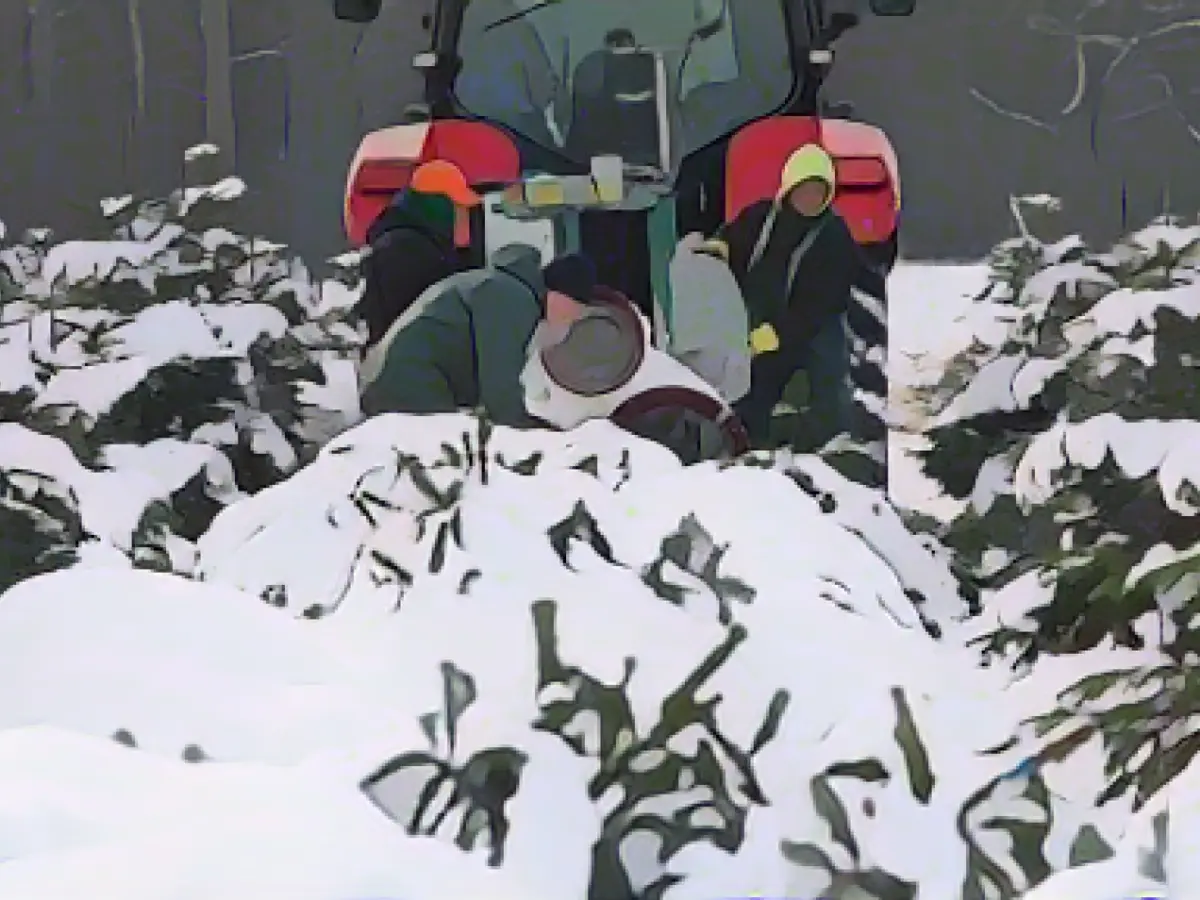Festive decorations - Snow makes Christmas tree harvest difficult
The snowy winter days have certainly not made work on the Christmas tree plantations any easier: snow-covered Christmas trees are beautiful to look at, but difficult to harvest. The industry association VNWB even asked for "understanding if some sales outlets open a little late due to the weather" or if the full selection is only available a few days later.
The Christmas tree plantations of the Ostseetanne company in Marlow (Vorpommern-Rügen district) will continue to harvest Christmas trees over the next few days. "This has been the most difficult season so far. The massive snowfall was a disaster for us," said Managing Director Benedikt Schneebecke. The trees were each around ten kilograms heavier in the net due to the snow. The markings on the trees were also difficult to find. "It was very, very exhausting for all the employees."
The trees from the plantation are transported to the approximately 65 sales stands of Ostseetanne and also to external sellers. According to Schneebecke, 85 percent of the business is accounted for by Nordmann fir. Prices are at the previous year's level of 22 euros per meter on average. Around 140,000 new trees are planted every year.
The trees in living rooms this year are usually ten to eleven years old. An average Nordmann fir is planted when it is around three years old and then stands in the plantation for another six to eight years before it is felled for Christmas. It then reaches a height of around 175 centimeters.
Baltic fir
Read also:
- A clan member is punished here
- Will he be convicted as Jutta's murderer after 37 years?
- He also wanted to kill his cousin
- With live stream! Gawkers film dying man
- Despite the challenges in Rostock, Mecklenburg-Vorpommern, where heavy snow has affected Christmas tree harvesting, the demand for these traditional festive decorations remains high in Germany.
- In Lower Saxony, environmental concerns dictate that the use of real Christmas trees is encouraged over artificial ones, contributing to the overall needs for sustainable practices in the industry.
- The city of Rostock, known for its stunning architecture and maritime history, might need to adjust its "Saint's Eve" celebrations if the snow persists, potentially affecting the delivery of Christmas trees to its many sales outlets.
- Fir trees, such as the Nordmann and Baltic varieties, remain a symbol of festive cheer in Germany, with farms in Mecklenburg-Vorpommern, including the Ostseetanne plantation, continuing to cater to the demands of the local market, despite adverse weather conditions.
Source: www.stern.de








